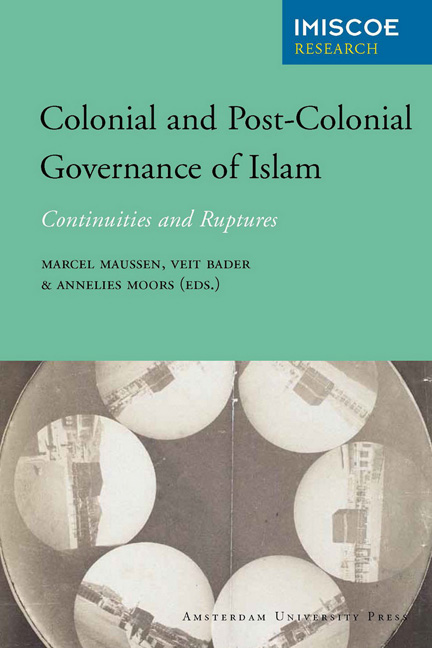5 - Governing Islam by Tribes and Constitutions: British Mandate Rule in Iraq
Published online by Cambridge University Press: 05 February 2021
Summary
Introduction
The study of the religious dimensions of Iraq's modern history is not only of inherent historical, theoretical and comparative interest, but a matter of practical urgency. At present, however, these dimensions are only imperfectly understood; earlier studies from a modernisation-theoretical or a political-economy perspective tend to ignore or downplay religious factors; at best, they focus on specific religious groups, most prominently, the Shiites. Here, we will trace how religion in Iraq was shaped and reshaped between late Ottoman rule, the British mandate (1920-1932) and the early monarchy. Our cut-off point will be the 1929 British decision to end the mandate, which set the stage for Iraq's formal independence in 1932; for reasons of space, we cannot analyse later developments in detail, but we will make a few brief remarks comparing and contrasting mandate Iraq with later constellations.
Government and modernisation: Towards a genealogical and interactional approach
Most existing studies explore Iraq's emergence from the Ottoman Empire using either a modernisation-theoretical or a political-economy perspective. A genealogical approach, by contrast, proceeds from the assumption that notions like religion, the state and society are not neutral analytical tools; rather, they only acquire a determinate content against the background of governmental and other practices. The enormous changes in these practices during the nineteenth and twentieth centuries imply that those concepts themselves radically changed their content as well. Thus, it is difficult to describe the pre-modern Ottoman Empire as involving a ‘secular state’ or a ‘multiethnic’ or ‘multicultural society’ in the present- day sense: not only was there no clear-cut equivalent of the liberal publicprivate and state-society distinctions on which the notion of secularism rests, but both the notion and the entity we call the state also underwent qualitative changes. In addition, in a very real sense, there was no such thing as Ottoman society yet. Ottoman administrators had neither a notion of the Ottoman population as a whole nor the concomitant population policies until very late in the empire's history. In fact, the very words for ‘society’ (the neologisms ijtima’a in Arabic and the even more recent to- plum in Turkish) were not coined until the late nineteenth and early twentieth centuries.
- Type
- Chapter
- Information
- Colonial and Post-Colonial Governance of IslamContinuities and Ruptures, pp. 89 - 110Publisher: Amsterdam University PressPrint publication year: 2012



